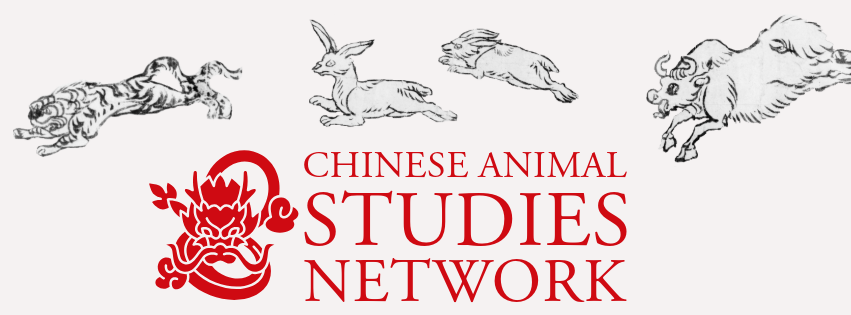
In this Talking Animals post, we interview our very own co-founder Renée Krusche about her work on veterinary medicine in twentieth-century China including equine acupuncture, opium, and hamsters.1

Renée Krusche is a Research Fellow and Lecturer in Sinology at Friedrich-Alexander-University, Erlangen-Nürnberg. Her research interests include the history of science and medicine, gender in Chinese and Asian history, and human-animal relationships. More recently, she has been working on the history of veterinary medicine in imperial and twentieth-century China.
Hi Renée! Thank you for joining us on Talking Animals. To start, what first inspired you to include animals in your research?
I first started to study animals in the context of Chinese veterinary history when I was doing my Masters. Back then, the term (human-)animal studies had not yet crossed my path but due to my personal interest I was very much drawn to the prospect of including animals in my own research. This resulted in a thesis on horse acupuncture in the first two decades of the PRC and a strong interest in continuing to look at animals in future projects. This was further encouraged by personal fieldwork I was conducting with friends who had experience in acupuncturing pets and horses, and who demonstrated to me how communication between a practitioner of medicine and an animal informs medical practice.
Your work on equine acupuncture sounds fascinating! Have you discovered anything surprising while studying animals in Chinese history?
Quite a few surprising things, actually! The most obvious would be the many instances where animals contributed to the human history of China. By this, I don’t mean the obvious impossibility of the Yuan or Qing empires without their horses, but rather the mundane fact that oxen simplified ploughing for humans and made agriculture more efficient, that dogs made a home secure through their surveillance, and that certain animal meats were construed as a signal of status.
One particularly curious story I have come across during my research on sheep-keeping and care during the Republican period is the constant use of Opium to ward against certain illnesses. This struck me as being rather odd but also very understandable for a period that is marked by its Opium overconsumption in humans. It would seem that this ubiquity even facilitated the inclusion of Opium in the treatment of sheep (and other livestock).
You’ve been working on animal care and medicine for much of your academic career. Is there a resource or theory you’ve found particularly helpful while developing your approach?
I have enjoyed reading the works of Nigel Rothfels, especially his book Elephant Trails which aims to locate elephants in our museums, municipal documents, and menageries. His work provides fundamental insight into the struggles we face when studying historical animals, while also highlighting the evidence we do have and can use to make animals more prominent in our historical work.
And what animal-related questions are you aiming to answer in your research next?
How similar or different were animals and humans in Chinese medical contexts? This includes analysing the orthodox canon of Chinese Medicine but also encompasses agricultural treatises, reports on epidemics, and comparisons of language in veterinary and human medical texts.
Finally, if you could be an animal, what animal would you be and why?
When we set up these interview questions for our network, I thought this question was an easy and fun one! But now I’m the one answering, I realise how difficult it is – particularly as I’m an animal lover who never outgrew their ‘I love horses’-stage (unlike most of my fellow six-year-old German girls)!

Here, I’m honouring my late hamster Socke!
To this day, I cannot imagine a more gratifying activity than to leave my desk and go out for a ride on horseback or just a short walk with a four-legged friend. So, my answer is the same as it was when I was six and pestering my mother for riding lessons: I would enjoy being a horse, running wild in a close-knit social group.
- Renée Krusche has presented on a range of animal-related topics, including:
– “Das Neue mit dem Alten bekämpfen: Traditionelle Tiermedizin für moderne Tierkrankheiten in der jungen Volksrepublik China (1950er-1960er Jahre)”. DVCS 2024.
– “The Secret Lives of Sheep Republican Husbandry and Veterinary Techniques
for a Wolly Population”. Ruprecht-Karls-University Heidelberg Lecture Series, December 2024.
– “Livestock – Part of More Than One World. Veterinary approaches to livestock in Republican China”. Transgressive Beasts Workshop, August 2022.
– “Finding Meridians in Livestock – Chinese Veterinary Medical Handbooks in the Maoist Era”. Annual Conference of the Association for Asian Studies, April 2016.
– “Traditional Chinese Veterinary Medicine in Maoist China – Horse Health Care between 1949 and 1966”. International Conference on the History of Science in East Asia, July 2015. ↩︎
